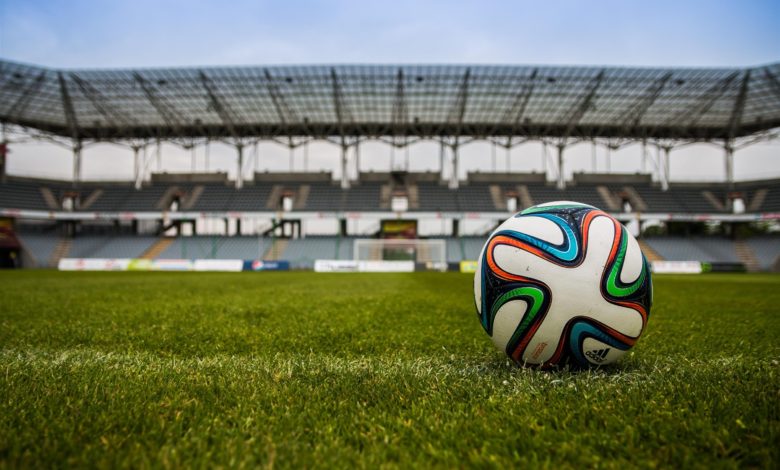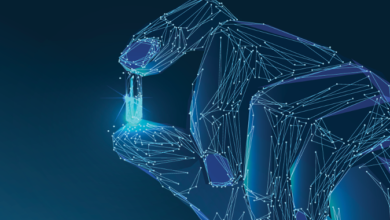
AI is transforming the sports industry. Whether it’s at a professional or grassroots level, innovation is changing the way we play, manage and think about sports.
Two inspirational founders challenging the status quo via their genius AI solutions are Ryan Beal, Founder of Sentient Sports and Devon Lewis, Founder of Inpulse. Powered by the startup accelerator at the University of Southampton, Future Worlds, they unveiled their ground-breaking ideas at CES this year.
AI in Football Recruitment
Sentient Sports is a solution that uses research-developed algorithms to provide football clubs with a step change in their decision-making and scouting process for buying and selling players, promising to drive up footballing and financial results.
Ryan says: “I have always been a big fan of all sports and especially football. As the amount of data collected has grown, I was keen to explore how we could use AI to help improve decision making in sports and have been researching this as part of my Ph.D. at Southampton. We came up with a new model to start evaluating how players work together and valuing them as a pair rather than individually. This allows us to then predict how well a player will perform in a new team with new team mates. For this, we started to explore other AI methods for predicting how a player will fit a new team to help managers improve decision making for player recruitment.”
The way it works is they extract the pairs of players in a game of football that often links up and contributes to the positive passage of plays (e.g. goals and shots). From that, they can learn what makes a good pair by looking at a player’s on-field attributes and off-field factors such as player age, nationality and languages are spoken.
Sentient Sports have received a huge amount of support from the Future Worlds team at the University of Southampton. Through working with their partner, AI Abacus, a leading sports analytics company, they have launched a front-end portal for top football clubs across Europe to make use of these new AI techniques.
Ryan and his team have been researching the area for over two and a half years and believes there is a real need for a service like this to help football managers. He says: “Our AI algorithms help to provide assurance to player recruitment in football which has traditionally been a very subjective area to make decisions that cost teams hundreds of millions of pounds.”
Correcting muscle performance in real time
Inpulse has caught the eye of cyclists across the globe. Founded by neuroscientist, Devon Lewis, it leverages the power of AI to correct and improve muscle performance in real time. Its stimulation algorithm enhances the effectiveness of athletic training and reduces injury recovery times by increasing muscle output by up to 30%.
Devon says: “The human body has incredible potential, but building strength and improving the quality of movement is difficult and it’s hard to know what training and rehabilitation are most effective. Inpulse monitors movements of your body and activation of your muscles in order to identify your current activity. It continuously determines the optimal muscle function for that activity and coordinates small currents of electricity to activate the muscles needed to increase your performance.”
Devon has been developing the technology for the past two years while doing his Ph.D. at Southampton. He researched how muscles are coordinated by the nervous system, gathering insights to improve robotic and prosthetic devices to bring them closer to the fluidity of movement we see in animals. He says: “Although the focus was on using biological insights to improve robotic systems, it became apparent that there was a huge scope for using robotic insights to improve the control we have of our bodies.
“Our neuromuscular system is so far beyond the complexity we can currently engineer but for a huge number of us, we don’t have the control of it that we need. I realised we could use AI to identify inefficient and dangerous movements in real-time, and directly activate the muscles needed to correct any issues way faster and more accurately than anything we can do naturally.”
Devon believes Inpulse has the ability to transform a professional athlete’s life – and career. He says: “If you’re an athlete in peak condition or you’re suffering from injuries, movement disorders or losing mobility with age, Inpulse can give a faster, safer and more sustainable way to improve.”
The future of AI in fitness
And what about the future of AI in the sports industry? Ryan says: “I think there a lot of cool ways we can use AI to get new insights from sports and learn about how humans work together. There are not many other domains where you can get so much data going back many years where the same teams and players perform so often. There are many unexplored areas across all sports for AI to help with.”
Devon concludes: “We’ve seen a huge surge in data collection in the sports and fitness industry but there isn’t nearly enough being done with it. AI has the potential to unlock the power of the data we’re collecting and give us insights to drive performance in a way that would never have been possible without it, not only in sports and fitness, but the entire health and wellbeing industry.”




